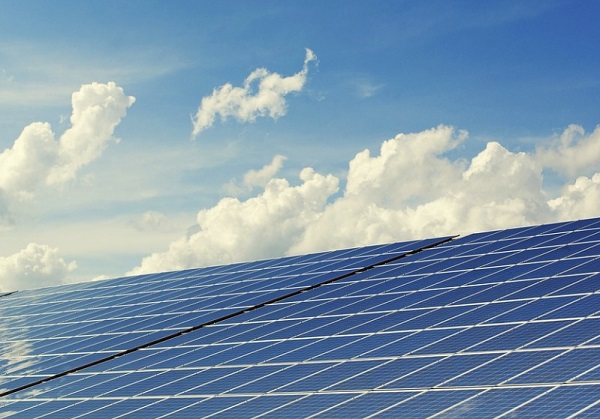TOWSON, MD—Unanimously, the Baltimore County Council passed a bill on Monday evening to align county solar zoning regulations with state standards. The bill, which was heavily amended, aims to ensure compliance with the statewide Renewable Energy Certainty Act, passed by the Maryland General Assembly in April.
The state legislation, awaiting Governor Wes Moore’s signature, prevents local governments from enacting zoning laws that hinder the construction and operation of solar energy facilities and front-of-the-meter energy storage devices that meet specific requirements. This includes prohibiting local governments from denying site development plans for these projects and mandating expedited review and approval processes.
Councilmen David Marks and Wade Kach, both Republicans, initially introduced Bill 18-25 in March. The bill underwent significant revisions to align with the state legislation. As explained by Councilman Marks, the bill primarily focuses on regulating solar facilities generating no more than 1 megawatt of electricity.
The amendments introduced by Councilman Marks specify setbacks of 300 feet between new solar facilities in resource conservation areas and residential structures. Additionally, the bill brings zoning requirements for solar projects up to 2 megawatts in line with the state’s standards.
Councilman Julian Jones, a Democrat, acknowledged the complexity of the bill, stating, “It’s a lot to unpack.” Councilman Marks expressed satisfaction with its progress, highlighting the need for further review of regulations capping solar facilities at 10 per councilmanic district.
Council President Mike Ertel, a Democrat, introduced an amendment to exempt solar projects that filed for special exceptions before February 1st from the bill’s provisions. He explained, “We didn’t want this bill to interfere with something that’s already been approved and on the way.”
Councilman Pat Young, also a Democrat, introduced an amendment to define “agrivoltaic” systems and create an exception for them within the county’s solar facility regulations. This amendment aims to support the simultaneous use of land for agriculture and solar energy generation. Young said, “We want to make sure we’re putting in regulations and controlling what we have the authority to control. We also don’t want to stifle opportunities for potential farmers and for folks that could benefit from a solar farm, but also utilizing the original intent of the land it’s being used for,” according to The Baltimore Sun.
A second bill, aiming to prevent solar development on prime farmland, was withdrawn by Councilman Kach. However, he indicated his intention to reintroduce it if the Governor signs the state solar bills into law. Councilman Kach expressed concerns about the state legislation, arguing that it undermines local control over crucial issues impacting county residents. He said, “What was happening at the state level was ‘regretful,’ saying that local residents are shut out of the solar facility siting process.”
This article was written with the assistance of AI and reviewed by a human editor.
Photo via Pixabay


